
As a result of these setbacks Ren appears to have realized Huawei has to be more open to win trust and erase any misunderstandings.
In internal conversations, Ren said he was not used to talking to journalists but he encouraged his management team to conduct interviews. The New Zealand media response, however, was an indication that he was prepared to make more of a personal effort.
Ren does not avoid sensitive issues. When local reporters asked about the US accusations, Ren said: "Huawei equipment is almost non-existent in networks currently running in the US. We have never sold any key equipment to major US carriers, nor have we sold any equipment to any US government agency. Huawei has no connection with any cybersecurity issues the US has conceived of, whether they are in the past, the current or the future."
Scott Sykes, a Huawei spokesman, told The Wall Street Journal: "Mr Ren is starting to feel more comfortable about speaking with the media. This is a major step for us."
Ren founded Huawei in 1987, when he was 44 years old. Before that, he had launched businesses over three years but none were successful. Ren did not give up but established Huawei with a registered capital of 20,000 yuan ($32,525). Initially Huawei just traded telecom equipment.
Iconic entrepreneurs
The first group of China's iconic entrepreneurs appeared in the 1980s, when the country underwent reform and opening-up. Among Ren's peers are Liu Chuanzhi, the founder of Lenovo Group, and Zhang Ruimin, who built up Haier Group, the home appliance empire.
Addressing questions about his experience as an engineer in the People's Liberation Army, years before he founded Huawei, Ren was quoted by a Fairfax New Zealand article as follows: "Back in 1978 ... my personal belief was to work hard, dedicate myself or even sacrifice myself for the benefit of the people."
After 24 years, when Huawei had grown into a telecom equipment giant that now challenges most of its rivals, Ken Hu, its deputy chairman, said in a public defense of Ren's background that many CEOs in big US companies are Democrats or Republicans and some of them, just like Ren, had served in the military. Nearly one-third of US CEOs in global Fortune 500 companies are graduates of the United States Military Academy at West Point, according to public records.
Ren is said to be a workaholic. His cellphone is turned on almost 24 hours a day, according to the book Will Huawei Fall Next? Ren takes more than 100 flights every year and he has no hobbies apart from reading and thinking.
Ren's work ethic has paid off. In 2012, Huawei secured its position as the world's second-largest telecom equipment vendor and delivered the best financial figures among the top five players.
Huawei is not far behind the No 1 vendor Ericsson. Huawei's revenue rose 8 percent to 220 billion yuan last year. Its net profit increased to 15.38 billion yuan during the period, up from 11.65 billion yuan a year earlier. Ericsson booked about $38 billion in revenue in 2012.
Huawei's rise accompanied the fall of other great companies. The stock price of Lucent Technologies Inc peaked at $84 a share in 1999 but quickly fell to a few dozen cents a share in 2002.
Lucent, which owns Bell Laboratories, was once regarded as a company with the most powerful telecom technologies. It merged with French-based Alcatel in 2007.
The major reasons behind Huawei's success are said to be its customer orientation and its continuous self-criticism, according to Ren. He once said, Huawei should treat customers with great passion. "Serving clients is the only reason why Huawei exists," Ren wrote in an article.
At an internal conference in March, Ren reiterated Huawei, a privately held company, would not seek a public listing for at least a decade. Previously, Ren explained to AEA Investors Chairman Vincent Mai and US business leaders at a New York lunch that technology companies such as his were driven by talented people. If Huawei lists too early it will create many millionaires which would damage people's passion for work, he said.
Ren also said he has only four family members working at Huawei and they will never be his successors. It requires many capabilities such as vision to become Huawei's leader but they lack this requirement, Ren said.
When he finally attempted to dismiss the air of mystery that surrounds him, Ren even talked about his retirement. He said he would open a bottle of champagne at the time.
"Maybe I will open a cafe or a restaurant and have a farm," he was quoted as saying. He didn't disclose a specific date but said it depends whether Huawei still needs him.

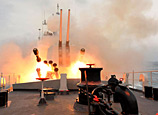
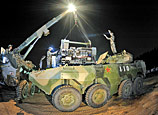

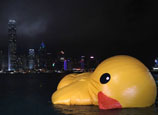


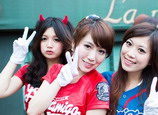
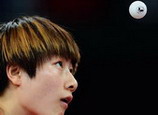








 Three injured in plane's failed take-off in NE China
Three injured in plane's failed take-off in NE China


![]()
